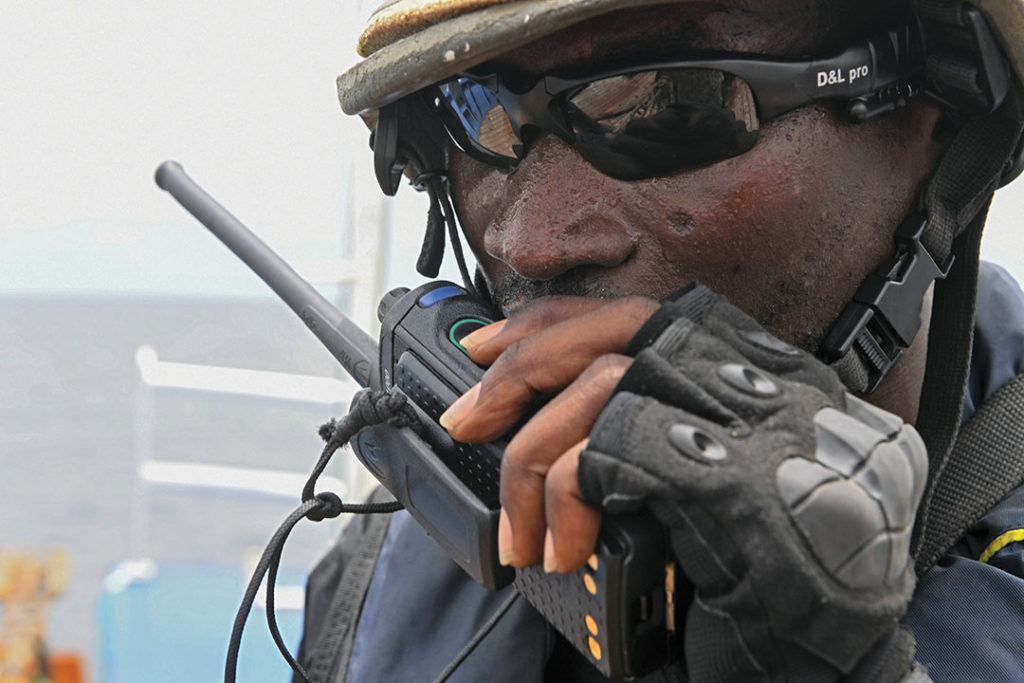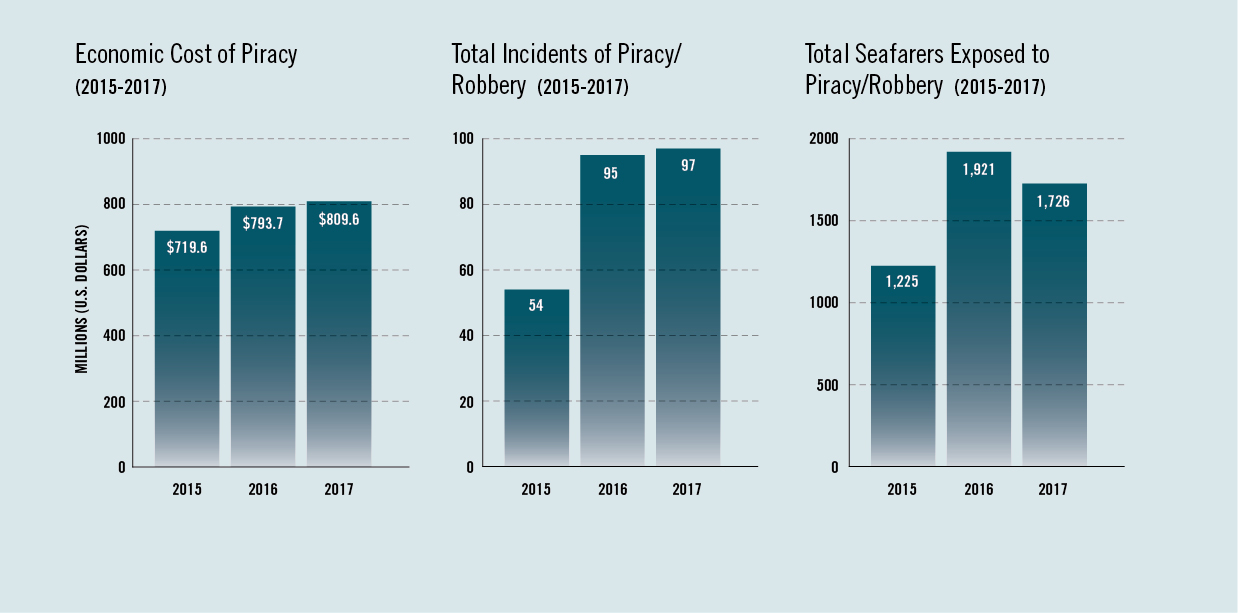Piracy in Africa’s Gulf of Guinea ramped up later and took on a different character than piracy in East Africa.
Pirates and maritime criminals in West Africa mainly sought to steal oil from tankers, a process called bunkering. However, there have been more instances of kidnapping for ransom in recent years that The Maritime Executive attributes to two causes: First, increased naval patrols in the gulf mean that thieves and pirates don’t always have the time to pull vessels alongside oil tankers and drain them of crude. Second, a dip in global oil prices makes bunkering less profitable. Kidnapping for ransom promises potentially high payoffs with less time and risk.
Oceans Beyond Piracy (OBP) reports that kidnapping for ransom continued in 2017, despite rises in oil prices. Its report indicates that there was only one incident of hijacking for cargo in 2017, but early data for 2018 showed criminals may be returning to that practice.
The overall number of piracy incidents stayed level in the Gulf of Guinea for 2017, but the number of successful kidnappings increased, OBP reported. Total incidents logged in at 54 in 2015 and were nearly doubled to 97 by 2017. Gulf of Guinea attacks were centered off the coast of Nigeria between eastern Ghana and São Tomé and Príncipe.
Starting in 2016, OBP noted the trend of robbers hitting vessels anchored near major ports. That trend continued in 2017 and 2018. Early in 2018, attackers hit three ships anchored off Cotonou, Benin’s, port. Two ships disappeared, and the third was involved in a gunbattle between criminals and Benin Navy personnel. OBP noted that the Port of Cotonou has grown recently, largely because of increases in maritime trade and the danger of operating off the coast of Nigeria. Cotonou handled twice as much cargo in 2017 as in 2007. As traffic increases, ships spend more time anchored and waiting for a berth, which makes them more vulnerable to attack.
“These recent attacks show that pirates are following the merchant traffic and moving their operations to where easy targets can be found,” according to OBP’s report, “The State of Maritime Piracy 2017.”


